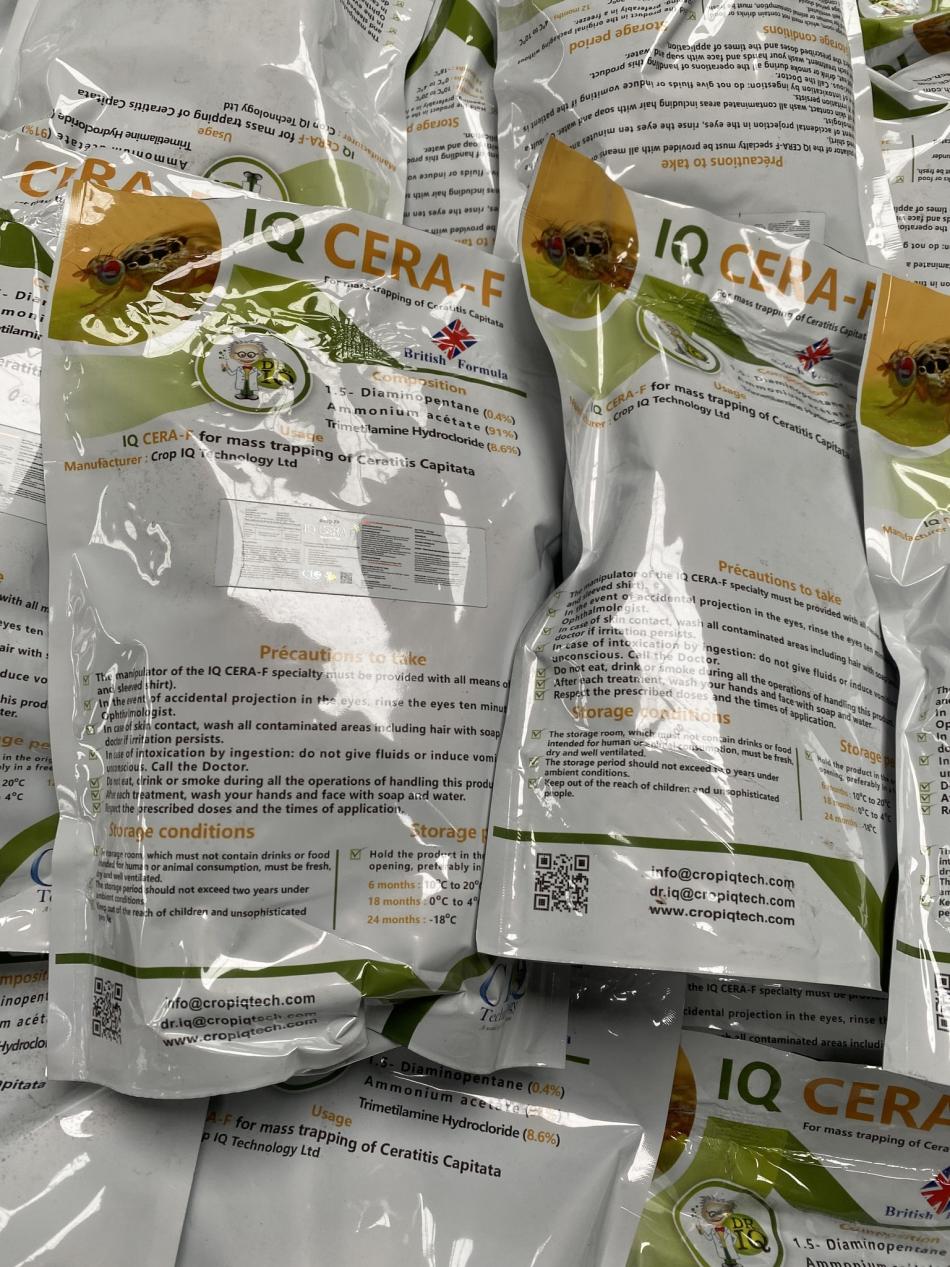IQ CERA-F
Use in mass trapping for the management of the Mediterranean fruit fly Ceratitis capitata
The Mediterranean fruit fly, Ceratitis capitata Wiedeman (Diptera: Tephritidae) is one of the most destructive fruit pests in the world, causing important damage in several fruit crops.
The Mediterranean fruit fly Ceratitis capitata attacks citrus fruits, stone fruits and more than 270 different vegetables, fruit, citrus, pome fruits, stone fruits, berries and nuts. This fruit fly species originated in the Mediterranean countries. The pest is currently distributed across Central and South America, Europe and Northern Asia, the Mediterranean Basin and Africa.
Larval feeding in fruit is the most damaging to crops. The larval tunnels provide entry points for bacteria and fungi that cause secondary infections and result in fruit rot.
CONTROL MANAGEMENT
The control of the medfly has been carried out by the application of contact insecticides to the entire tree or partial treatments with a mixture of insecticide and food attractant.
Since most of the damage occurs close to the harvest, the application of chemical insecticides is not convenient due to the risk of residues in the fruit, which may be higher than the levels permitted. For this reason, an also for the efficacy, the technique proposed to manage this species is mass trapping. This procedure consists of attracting medfly adults to a trap baited with an attractant, where insects die due to contact with an insecticide.
Nature of Damage
Ceratitis capitata is highly polyphagous and causes damage to a very wide range of unrelated fruit crops. In Mediterranean countries it is particularly damaging to citrus and peaches.
Ceratitis capitata transmits fruit-rotting fungi. Adults puncture the protective skin of fruits to lay eggs, allowing fungi to infest the crop.
Larval feeding damage in fruit is the most damaging. Mature attacked fruit may develop a water-soaked appearance. Young fruits become distorted and usually drop. The larval tunnels provide further entry points for bacteria and fungi that cause the fruit to rot.
These maggots also attack young seedlings, succulent roots, stems and buds of the plants.
FORMULATION
The product IQ CERA-F comprises a dispenser that contains attractants specific to the source of the damage which are females of Medfly. There is no any pesticide in IQ CERA-F’s Trap, we ar using new environmentally friendly biodegradable long-lasting glue.
The effectiveness of IQ CERA-F depends on temperature, air and relative humidity. Under normal conditions, it can be around 150-180 days, which may be reduced at high temperatures or strong winds.
Please contact CropIQ’s technical team for protocol of application in field.














